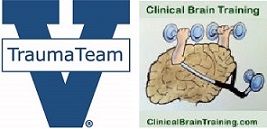I’ve taken care of lots of patients with life threatening injuries and surgical problems. When I look back and try to figure out what was the key factor in survival, it is keeping the problems one-dimensional.
What I mean is that it is rare to find any single system problem (outside of the heart and the brain) that is immediately and uniformally fatal. What happens is that you get a major abdominal problem, you dont watch kidney function close enough (or react quick enough to changes) and you lose the kidneys, then your fluid balance goes to hell and the patient gets intubated and has worsening vent settings, and so on, and so on.
If I can give one bit of advice from 18 years of taking care of these patients, even if you miss something big and have to do an emergency operation in the middle of the night that should have been done the previous day, you can get the patient over it if you jump on protecting their other organ systems with two feet. That is not the time to diurese them if you are unsure of their fluid status, it is not the time to start narrow spectrum antibiotics, and it is not the time to hold of on intubating them because you think the ABG is not giving you an accurate picture.
The way to get these patients through these episodes is to be over aggressive in protecting the function of the remaining systems. Once you lose the kidneys, go into ARDS, and become coagulapathic, things get much more complicated. Also, remember, do what you neeed to do to protect their remaining organ systems, and this means holding off on procedures and tests that are not central to the problem at hand. If a patient is looking septic, that is not the time to undergo a 5 hour plastics facial reconstruction, unless you think that is central to the infectious problem. Same with ortho procedures and all others. Remember, operations that do not correct your central problem are a physiologic hit to the patient, and it may be one hit too many. These are decisions for the most experienced member of the team, and that should be the attending.



 Subscribe in iTunes
Subscribe in iTunes